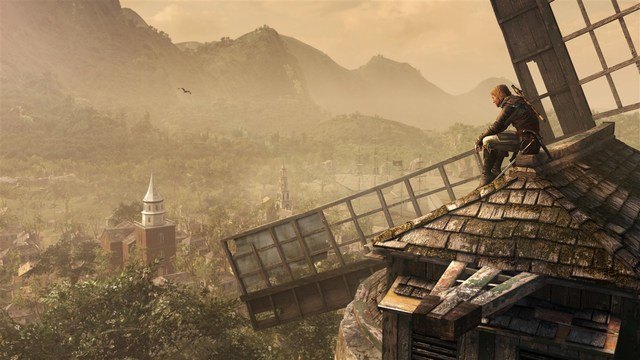With the success and improved technology from last generation consoles and the continued innovation of next generation gaming, we have seen many open world games. Despite the fact that they offer us beautiful worlds packed with content, is there a need for change in our open world framework? Without change, the open world template stands to become generic and, ironically, quite linear in its structure. Here are a few ways in which open world game developers could break the habit and create something more refreshing and innovative. Let’s take a look at some of the biggest flaws in open-world titles and how different games have handled them.
Side Missions
We have all encountered time-killing and soul-destroying optional missions. Kill this, investigate that, collect those and, of course, fetch quests. (ARGH!) You are immersed in a fantastic world; stunning and rich with lore, all glued together with a gripping and engaging story. However, these ridiculous side missions have been around as long as gaming; old relics that need to be discarded, or, at the very least, changed and improved.
Worst Offender – Dragon Age: Inquisition

Although DA:I may not be the worst culprit, it was certainly the most disappointing. It was one of the first open world RPGs on the next-gen scene and boasted a world you could lose yourself in for hours…as long as you got lost doing boring side quests.
Benchmark – The Witcher 3: Wild Hunt

Yes, The Witcher 3 has over 250 side missions, but this game does a fantastic job at disguising them and driving them with rich characters and a unique story for every single one. Although this doesn’t solve the problem, it is undoubtedly a step in the right direction.
Frame Rate Issues
It doesn’t matter if the world is vast, gorgeous and full of secrets to explore; if the frame rate drops, the experience is ruined. Developers brag about how massive their world is, but wouldn’t we much rather a smaller world with better frame rate mechanics? That way you can lose yourself in a more enthralling and consistent world, rather than literally getting lost and then getting annoyed because the game won’t keep up.
Worst Offender – The Witcher 3: Wild Hunt
Yes, The Witcher 3 again. The number of frame rate drops, glitches and bugs in this game far surpass any other next-gen title. The Witcher series has nearly perfectly brought the books to life and kept much of the lore and story. But it is difficult to enjoy that when you get start stuttering whilst tearing away on horseback from an enormous monster.
Benchmark – Metal Gear Solid: The Phantom Pain
A truly exceptional game; a visual feast for the eyes; brilliant missions and characters with personality, yet not a single drop in fps (at least not in my experience). Hopefully Kojima has set a trend by creating a rightly unforgettable experience and, hopefully, many will follow in his steps by giving us quality over quantity.
Completionism
There are many of us out there that must complete every story mission, side mission, collect all legendary equipment and full level-up every character. But then again, who has the time these days? Developers boast that a game will take over 100, 200 or even 300+ hours to complete. If you have a 9-5, pay a mortgage, and maybe have kids, then this is simply not a realistic goal. It tarnishes the experience of the game, knowing from the start that you will NEVER fully complete this game. Yes, it is great to find out that a great game is also going to be a long one, but once your quest list gets bogged down, your inventory is officially full, and you can’t be bothered to even fast travel anymore, then what is the point?
Worst Offenders – Mass Effect Series
(I couldn’t select The Witcher 3 again…could I? …No better not).
The Mass Effect series is gigantic, with great character progression, immersive landscapes and fantastic story-based decisions. But unless you’re a diehard fan, when are you going to find the time to complete it all?
Benchmark – Batman Arkham Series

Undoubtedly the most popular superhero based video games of all time, the Arkham series shows us that a great game does not have to be inordinately gargantuan. This series really does prove that bigger is not always better. Don’t get me wrong, Arkham City and Arkham Knight are large games with plenty of content, but it is still realistic that one may complete all the Riddler’s riddles and every other side mission available.
These are only a few issues that need to be addressed for the sake of next generation open world gaming. Hopefully, we’ll see a shift in the genre that makes developers value the quality of the world over the scale. But in the meantime, let’s enjoy the titles that have nailed the open world scene.
Do you agree with this list? Share your thoughts in the comments on what you would like to see change/not change.










Published: Nov 9, 2015 01:58 am